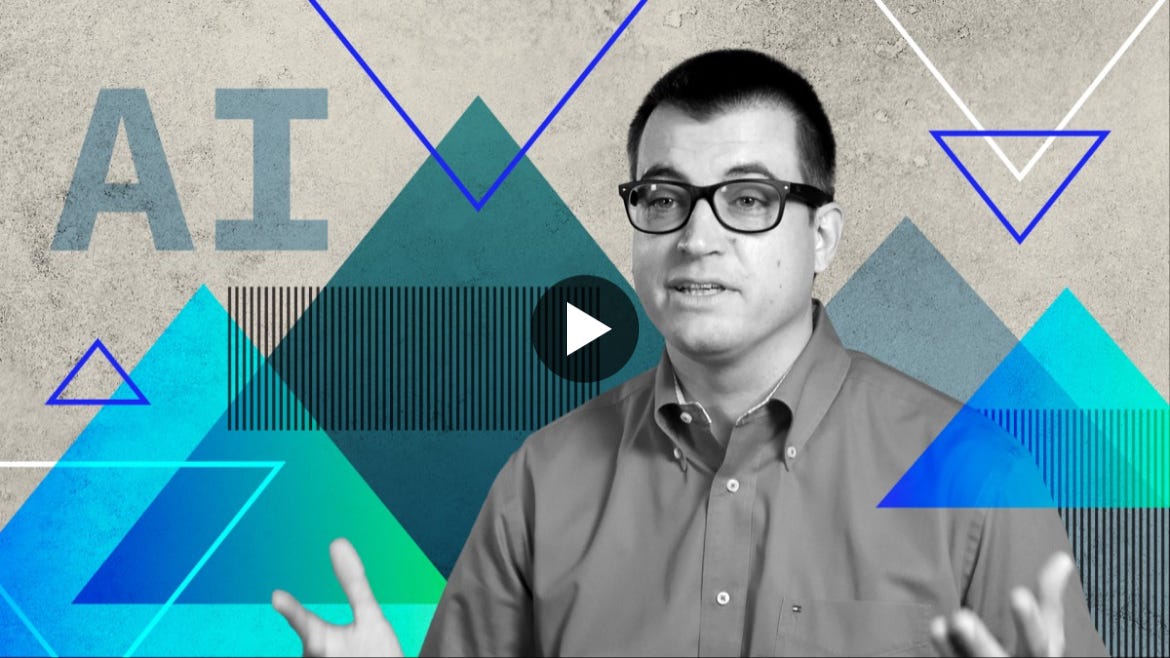Technologists Are Redefining The Workplace—Where Is HR?
Why Organizations Need Early HR Engagement In The Coming AI Agent Revolution
For years, business functions investing in departmental software have been seen as the primary source for the IT department’s upcoming irrelevance—getting side-stepped, outpaced, and disintermediated. But the pendulum is swinging back without much discussion. Human Resources is rapidly losing influence to the CIO and CTO. This is so much so that the question becomes: Will the CHRO report to the CIO soon?
Expanding the Scope of Human Resources to AI Agents
Human Resources is one of a business's most established and standardized functions. The work focuses on workforce planning, talent acquisition, performance management, compliance, compensation, retention, and retirement—a macro business process known as hire-to-retire. It involves understanding what business units, departments, roles, and job descriptions a company needs, what talent, skills, and experience support its goals and mission, and what compensation mechanisms, benefits, policies, and training set the workforce up for success.
There is a good reason why organizations have (and need) HR expertise.
The focus of these core HR responsibilities is rapidly expanding from humans to software, namely AI agents. Agents can take a goal that the user defines, break it down into subgoals, and work on these subgoals independently until the larger goal has been achieved. AI agents work well under uncertainty, where static “if this, do that”-rules are too cumbersome to define and maintain.
AI agents are poised to ring in a new era of productivity and efficiency gains across business functions. Whether agents take over a single task or are organized in virtual teams of specialized agents to solve a more complex problem, AI agents challenge the status quo of how work is done.
ONLINE COURSE — Agentic AI: Challenges and Opportunities for Leadership
Prepare for the challenges and opportunities of agentic AI as you lead AI transformation in your organization. When you know how to prepare your organization for AI agents, you can maximize the benefits of these technologies while minimizing disruption.
Take this course while it’s is available for free for a limited time. 👇🏻
Take the course on LinkedIn Learning
Learning objectives
Explain the potential benefits and efficiency improvements of AI agents.
Develop strategies to address challenges and risks associated with the implementation of AI agents.
Assess the impact of data quality and bias on performance of AI agents.
Identify the opportunities AI agents create for business efficiency and innovation.
Design a comprehensive plan for integrating AI agents into business processes.
Technologists Are Defining the Future Workforce
AI agents are an emerging technology, and the tech industry is just scratching the surface of what it can do. The capabilities and scope of agents will expand rapidly in the coming months and quarters. More complex agents with a broader scope will emerge from individual agents specializing in completing a single task.
Introducing AI agents into businesses and their processes will rapidly challenge established paradigms of division of labor, decision-making, and accountability. Few organizations and HR functions are truly prepared for it.
Yet, managing agents draws from managing human team members:
Persona (cultural fit): How do we want the agent to behave and communicate?
Scope of work (job description): What is the agent expected to work on?
Responsibility (seniority): What is the agent allowed to do?
Policy adherence (code of conduct): How is the agent expected to behave?
Rewards (compensation): What incentives should we create to motivate goal achievement?
Planning (workforce analysis): How do we know we need more AI agents?
Collaboration (organizational structure): What teams, roles, and collaboration between them do we need?
The coming wave of AI agents is not being shaped by HR experts managing these aspects. Instead, technologists define what agents do, how they act or react, what persona to adopt, and what rules to abide by. These decisions are made outside well-established HR processes and norms—even deciding how many agents are needed.
This approach creates three key risks:
Inconsistency of agent personas, behavior, and bias
Considerations: How do we want our agentic workforce to act and respond in a way that represents our company consistently and well?
Example: A technology-focused team works with the customer service function to create a team of AI agents. The persona description includes: “You are a friendly, helpful customer service assistant who does anything to leave the customer satisfied.” When the technology team works with procurement, they might define the persona: “You are an expert in negotiating proposals with suppliers and focus on purchasing the highest-quality product at the lowest price.” How these customer service and procurement agents behave might be completely different (making concessions for the customer and ignoring win-win scenarios when negotiating).
Lack of alignment with corporate policies and their evolution
Considerations: What legal and financial risks do we foresee when agents operate outside of corporate policies and professional codes (e.g., integrity, confidentiality, objectivity)? How can AI agents be grounded in the most recent version of an approved policy?
Example: The agent definition refers to your company’s code of conduct in broad strokes: “You should not accept any gifts from customers or prospects or optimize financial gain at the expense of the customer.” This is just an excerpt of the policy. A hard-coded definition will be outdated the next time an update to the actual policy is published. Maintaining it across all your agents will require additional effort.
Missing job hierarchy and role definition
Considerations: What role definitions are needed centrally (e.g., based on seniority or scope of the role) and as part of a hierarchy? What scope does a supervisor agent have compared to an associate-level agent that gathers information? What constitutes success, and how can we measure and reward it?
Example: As virtual teams of AI agents evolve, there will be several roles, ranging from the scope of work to the proficiency. For example, a dispatcher agent must know which agents can answer a particular question or contribute to solving a particular goal. A supervisor agent needs to review, critique, and improve the generated output by a subordinate agent. These roles and definitions of their capabilities will be similar across business functions. Driving standardization can accelerate the defining of common roles and tasks.
Lastly, these risks will accelerate a new wave of “Shadow AI.” Just imagine how will the above risks be amplified when technology teams create agents or delegate the creation to individuals across the organization.
How HR Leaders Can Add Value
As much as technologists are leading this coming wave of AI agents, HR leaders need to have a seat at the table when technology decisions are made and the paradigms of work are changed.
With decades of experience managing human resources, it is time to evolve HR into advising on managing agentic resources. Simply put, HR leaders need to shape this new future of humans and increased AI:
For employees: Provide training, awareness, and communication on how AI agents will change jobs. Prepare individuals to leverage these new capabilities in their role.
For the organization: Define and expand guidelines, personas, rewards, and workforce planning to include AI agents. Advise on standard definitions and repositories to maintain information about AI agents and their scope of work.
But it’s not just the HR leaders’ self-interest that should drive this. Technology leaders are well advised to invite HR experts into their circle when defining an AI agent strategy. Together, they can benefit from applying tried and tested concepts of the human workforce to the emerging agentic one.
Will the CHRO report to the CIO soon? Join the discussion in the comments!
Explore related articles
Become an AI Leader
Join my bi-weekly live stream and podcast for leaders and hands-on practitioners. Each episode features a different guest who shares their AI journey and actionable insights. Learn from your peers how you can lead artificial intelligence, generative AI & automation in business with confidence.
Join us live
November 05 - Bernhard Ritz, CEO & Founder, Ainzel, will join and share how you can supercharge your business processes with collaborative AI agents.
November 18 - Petr Baudis, Co-Founder & CTO, Rossum, will join and discuss how you can automate your document processing with LLMs.
December 03 - Leanne Shelton, Founder & CEO of HumanEdge AI Training, will be on the show to talk about AI in Creative. (More details soon).
December 10 - Kiumarse Zamanian, Senior Product Executive, will share guidance on selecting the optimal agent framework for your business. (More details soon.)
Watch the latest episodes or listen to the podcast
Follow me on LinkedIn for daily posts about how you can lead AI in business with confidence. Activate notifications (🔔) and never miss an update.
Together, let’s turn hype into outcome. 👍🏻
—Andreas









